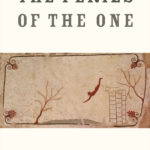Gourgouris’s Perils of the One
Guests
Documents
Links
Keywords
Share
The book is available online through the Yale Library.
We will be reading chapter 6, “Every Religion is Idolatry”
Reading guide
In “Every Religion is Idolatry,” the sixth, and the last chapter of The Perils of the One, Stathis Gourgouris brilliantly assesses the complicated and intricate configuration of the historicity and permutations of concepts such as political theology, secularization, religion, or monotheism. Gourgouris’ intervention in the debate around the secularization of Western society within the frame of Western Modernity is rather stimulating and sharp, given the widespread overconfidence, misreadings and simplistic elaborations around such a tricky process as “secularization.” The oxygenation comes from a combination of a profound exercise of critical thought, the deployment of philological expertise, vast historical knowledge, and a much-needed nowadays compromise with the enterprise of understanding today’s social and political institutions.
This chapter engages with a vast number of references, addressing and shedding light on Western philosophical, political, theological, and religious thought. The starting point is the analysis of the concerning shift from the political economy “as a primary interpretive concept in politics” (137) to political theology, a shift that amounts to the concealment of the “dependency of sovereignty (specifically understood as sate power) on society’s economy” (137). Dismantling political theology becomes, then, not only a central strategy for Gourgouris’s argument but also a departing point from which he articulates his critique to monotheism, secularization, heteronomy, and idolatry.
Gourgouri’s examination of monotheism is particularly illuminating. By analyzing monotheism as “a rupture in the field of truth,” a rupture that introduces “knowledge of a singular,” and exclusive truth, or what he calls “monotheism-effect” (163). This effect’s impact is, as Gourgouris justly shows, the rising of a new political order based on the conjunction for the first time of divinity and the law of society (164). Therefore, the combination of the political and the theological that monotheism instituted in the social imaginary took the shape of a political theology that is imperative for the existence of monotheism itself. Gourgouris demonstrates, then, how the paradoxical logic of monotheism points to a division between the worldly and the divine. At the same time, the theological, as a sort of social surgeon, sutures the division by occupying the transcendental portion of the political with the result of a fusion of theology and instrumental power (166).
The result of this thread of thought is striking. The monotheistic imaginary accounts for the configuration of a political field in which the theologization has shaped an exclusive transcendental truth, unquestionable and saved from human’s interrogation, above everything and everyone, a quality that Gourgouris calls “ontological monarchism,” and that situates monotheism as a political problem in its core, as religion is. Drawing from Cornelius Castoriadis’s thought, Gourgouris addresses one of the fundamental grounds of religion, namely, its appropriation and concealment of the radical imaginary (Chaos, Abyss, society as a self-creation) by instituting a particular and exclusive imaginary. This social imaginary is always based on reified representations (idols), but it negates this condition while imposing on every other religion the idea that idolatry only pertains to them, as enemies that reside on the real of non-truth. Therefore, political theology, as Gourgouris brilliantly concludes, “is always political before it has anything to do with the theological and, insofar as it is political, it is instituted on the basis of constructing an enemy” (186).
Finally, Gourgouris proposes “the language of theatricality as the antidote to theology tout court” (136). Theatricality and performance would work as a route to abolish the exclusive and self-referential framework of truth and meaning derived from monotheistic imaginaries and their transcendental politics. The Perils of the One ends with a call for a reinserting the long-concealed “fragility of human existence” in the social imagination, and, in doing so, to counter the “heteronomous language of political theology” (197), that is to say, a regaining of autonomy for the human existence as a result of recognizing its fundamental role in the creation and institution of what Castoriadis called the social imaginaries.
A few questions:
- Can the process of instituting social imaginaries and eidos (for example, an eidos of nation or society) be ex-nihilo? What’s more, what are the conditions of possibility for a process of desacralization, systematic iconoclasm, and detheologization of human existence?
- How is the relationship and negotiation between, on the one hand, theatricality and performativity, as route to counter the political theology and escaping from its heteronomous language, and, on the other, the institutions and instances of power embedded in the society and whose structures are at the same time result of the ontological monarchism and flexible enough to appropriate revolutionary of transformative movements?
- How can we articulate a collective political project (of radical democracy, for example) using the liberating potential of theatricality?
First paragraphs
“The assertion I have chosen for a title is a quotation from a very important essay by Cornelius Castoriadis on the imaginary institution of religion, which is unique in his overall oeuvre and has not really gotten the attention it deserves. It is especially pertinent to the discussion of political theology and the question of what politics theology mobilizes. I will address Castoriadis’s essay and the quotation specifically in due time, but only after working through a long and circuitous trajectory that begins by fielding the question of political theology, not in the abstract but specifically in regard to its endemic monarchical politics, which will then lead us to explore some of the earliest aspects of Helleno-Christianity and the political-philosophical permutations of Trinitarian thinking. This will bring forth the question of monotheism as a symptomatic mode of political theology specific to the denial of its own idolatry, an inquiry that inevitably passes through Freud’s historical fictions in Moses and Monotheism. The problem posed by Castoriadis will then come to elucidate the contested terrain of iconoclasm’s own political theology, not just in the domain of religion but in the secularist frame- work itself, where the politics of unrepresentability continue to hold sway unchallenged. In other words, as two instances of monarchical thinking, political theology and iconoclasm are entwined in a double sense, by virtue of serving monotheism and by occluding their own idolatry. In this sense, mono- theism is not the opposite of idolatry but one of its instances. In the end, against this intricate nexus, I will propose the language of theatricality as a political antidote to theology tout court.”



